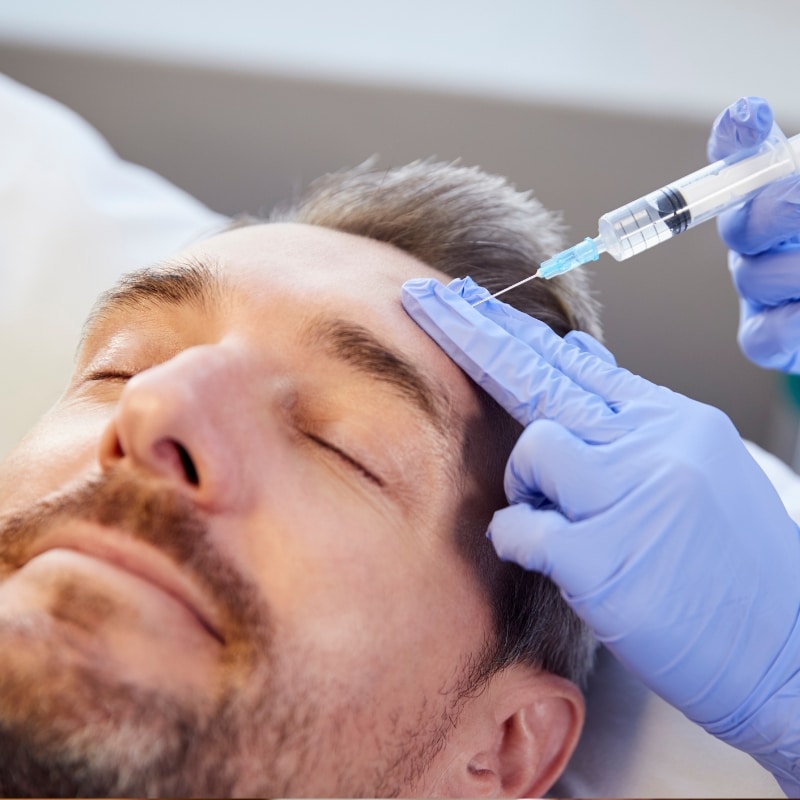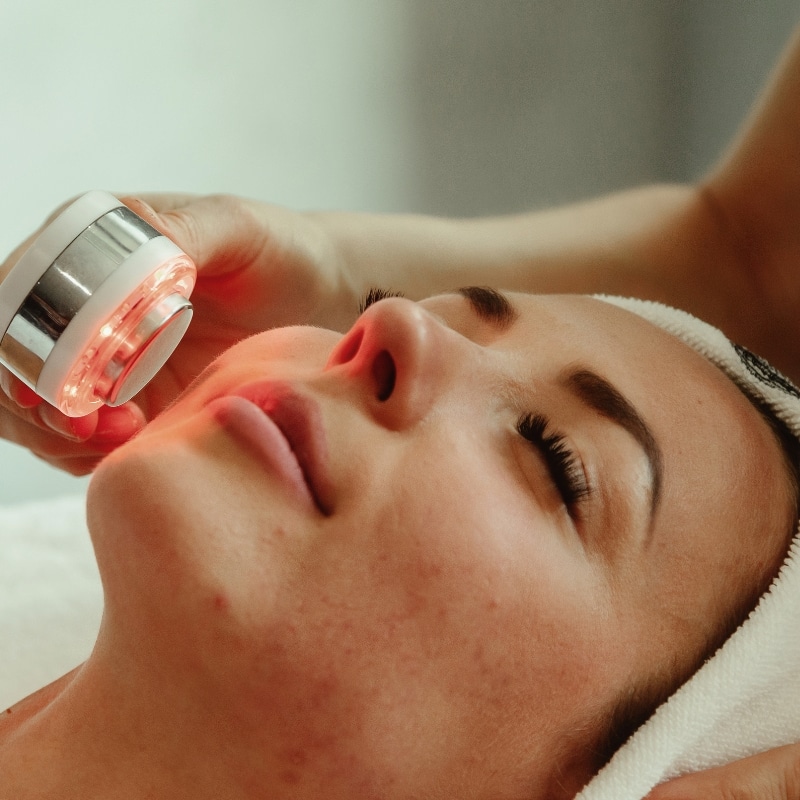A New Discovery Changes What We Know About Gut Microbes and Anxiety
Anxiety affects millions of people. It causes worry, stress, and even physical symptoms like nausea and a racing heart. For years, doctors and scientists have focused on the brain when treating anxiety, but new research suggests the gut may play a major role.
A 2025 study published in EMBO Molecular Medicine uncovered a direct link between gut bacteria and anxiety. Yu et al. found that gut microbes influence brain activity, and certain bacterial byproducts can reduce anxiety-related behaviors. This changes the way people think about mental health.
At Zeam Health & Wellness, we offer a whole-body approach to anxiety care. We combine mental health and primary care under one roof. We use evidence-based treatments like talk therapy, psychiatry, transcranial magnetic stimulation (TMS), and Spravato (Esketamine therapy) to help patients take control of their mental health.
Now, with research showing the gut-brain connection, people have even more ways to manage anxiety naturally.
The Study That Proves Gut Bacteria Affect Anxiety
Yu et al. (2025) focused on the basolateral amygdala (BLA), a part of the brain involved in processing fear and stress. They studied two groups of mice:
- Germ-free (GF) mice raised in completely sterile conditions with no gut bacteria.
- Mice with normal gut bacteria living in regular environments.
The results were clear. The germ-free mice had extreme anxiety-like behaviors. They avoided open spaces, hesitated before exploring new areas, and showed signs of fear more often than the normal mice.
When the researchers examined the amygdala neurons of the germ-free mice, they found overactive brain activity. Their neurons fired too much, making them more prone to anxiety. This proved that gut bacteria play a direct role in regulating brain function.
To test if gut bacteria could reverse anxiety, the scientists introduced microbes into the germ-free mice. The results were surprising. The once-anxious mice became more relaxed, and their amygdala activity returned to normal. This showed that gut microbes produce compounds that calm the brain and lower anxiety.
The Role of Indole Metabolites
One of the biggest discoveries in the study was the role of indole metabolites. These are small molecules made when gut bacteria break down tryptophan, an amino acid found in foods like turkey, eggs, cheese, and nuts.
To confirm if these metabolites reduced anxiety, Yu et al. (2025) gave germ-free mice indole metabolites directly. The following were the results:
- Neurons in the amygdala fired at a normal rate instead of being overactive.
- The mice spent more time exploring open spaces, showing less fear-based behavior.
- When the researchers blocked indole production, anxiety levels increased again.
This confirmed that gut bacteria are not just linked to anxiety—they actively help regulate it. Scientists now believe that boosting gut health with the right bacteria could be a natural way to treat anxiety.
What Earlier Research Showed About the Gut-Brain Connection
Before this discovery, scientists knew there was a link between gut health and mental health, but they did not understand how it worked.
A 2023 review published in Pharmaceuticals summarized existing research on gut microbiota and anxiety disorders. It analyzed clinical studies that compared stool samples from people with and without anxiety disorders. The review found:
- People with anxiety had fewer beneficial bacteria, like Lactobacillus and Bifidobacterium.
- They had higher levels of harmful bacteria that cause inflammation and stress in the body.
- The greater the imbalance, the worse their anxiety symptoms were.
Another 2023 review in Nutrients examined how diet affects mental health. It highlighted research showing that people who consumed fiber-rich and fermented foods had lower levels of anxiety and depression. The review also noted that probiotic supplements helped with cortisol regulation, an important stress hormone.
These reviews helped establish the gut-brain connection, but they did not explain why gut bacteria influenced anxiety. The EMBO study filled in the missing piece by showing exactly how microbial metabolites calm the brain.
Why Gut Health Matters for Anxiety Management
Gut bacteria influence anxiety in several ways:
- Neurotransmitter Production: Gut microbes help produce serotonin, dopamine, and GABA, all of which regulate mood and stress responses.
- Inflammation Control: A balanced gut microbiome lowers chronic inflammation, which has been linked to anxiety and depression.
- Blood-Brain Barrier Protection: Healthy gut bacteria help strengthen the blood-brain barrier, which protects the brain from harmful substances.
- Amygdala Regulation: Indole metabolites reduce neuron hyperactivity in the amygdala, lowering anxiety levels.
How to Improve Gut Health for Better Mental Well-Being
Since gut bacteria are influenced by diet and lifestyle, making small changes can improve gut health and reduce anxiety symptoms.
- Eat fiber-rich foods: Whole grains, beans, nuts, and vegetables provide fuel for beneficial gut bacteria.
- Add fermented foods to meals: Yogurt, kimchi, sauerkraut, and kefir contain probiotics that increase good bacteria.
- Reduce processed foods and sugar: Processed foods promote the growth of harmful bacteria linked to inflammation and anxiety.
- Get enough sleep: Poor sleep disrupts gut bacteria and raises stress hormones. Maintaining a consistent sleep schedule can help.
- Manage stress effectively: Stress alters gut bacteria, leading to increased anxiety symptoms. Practicing deep breathing, meditation, or regular exercise can help maintain gut balance.
Zeam Health & Wellness Whole-Body Approach to Anxiety Care
Anxiety treatments often focus only on the brain, but research now shows that gut health plays a major role in mental well-being. At Zeam Health & Wellness, we believe mental health care should address the entire body, not just the symptoms.
We provide both primary care and mental health services in one place. Our treatments include:
- Spravato (Esketamine Therapy): A fast-acting medication for treatment-resistant anxiety and depression.
- Transcranial Magnetic Stimulation (TMS): A non-invasive therapy that targets overactive brain regions to reduce anxiety.
- Ketamine Therapy: A cutting-edge option for patients who have not responded to traditional anxiety medications.
- Psychiatry & Medication Management: Personalized care to help people find the right balance for their mental health.
- Talk Therapy & Counseling: Therapy options designed to help patients develop coping strategies and long-term solutions.
Take Control of Anxiety With a Whole-Body Approach
At Zeam Health & Wellness, we help patients manage anxiety with scientifically backed treatments, from Spravato and TMS to therapy and primary care. If you are looking for a complete approach to mental health, contact us today to learn how we can help.




